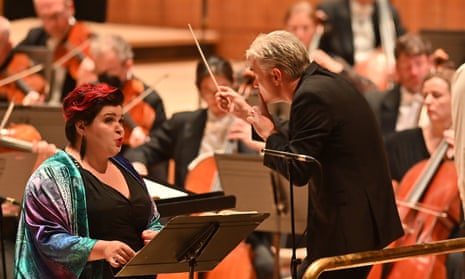It’s 17 years since Michael Tippett’s first and finest opera was last seen on a British stage, and more than half a century since the only previous commercial recording of The Midsummer Marriage. Conducted by Colin Davis, that was based on the 1967 Covent Garden production, while this new version, which overall seems to me at least the equal of its predecessor, is taken from the concert performance at the Royal Festival Hall in London a year ago with which Edward Gardner inaugurated his tenure as the London Philharmonic’s principal conductor.

With the possible exception of King Priam, first performed in 1962, all five of Tippett’s operas demand some suspension of dramatic disbelief. But The Midsummer Marriage’s heady mix of Jungian symbolism, fertility-rite eroticism and Golden Bough mythology, imposed on a plot that owes a great deal to that of Mozart’s Magic Flute, demands the most allowances. What redeems the unwieldy dramaturgy and costive libretto is the music, which includes some of Tippett’s finest invention; it’s a work that inspires enormous affection in the composer’s admirers, and, for Gardner, conducting the fabulously iridescent score was clearly an ambition fulfilled.
Certainly, this performance, powered by the sumptuous playing of the LPO and the contributions of its chorus, is charged with a special intensity in every bar. Gardner’s concern to make every rhythm buoyant and every orchestral texture as transparent as possible ensures that the four ritual dances in the second and third acts (which have become a concert item in their own right) rightly become the pivots for the whole drama.
The soloists are generally good, too. Robert Murray as Mark and Rachel Nicholls as Jenifer – the Tamino and Pamina of the situation, if you like – are fine singers, though perhaps miscast here: Murray’s role ideally needs a tenor with a bit more heft, Nicholls’ role a more flexible, lyric soprano (it was sung by Joan Sutherland at the 1955 premiere). But as Jack and Bella, the Papageno and Papagena equivalents, Toby Spence and Jennifer France seem an ideal pairing, and more than almost anyone else in the cast project their characters as believable, three-dimensional human beings. Ashley Riches brings a sardonic humour to the blustering King Fisher, Jenifer’s businessman father; Claire Barnett-Jones manages to make something meaningful out of Sosostris’s portentous third-act aria. And through it all, the overflowing exuberance of Tippett’s score carries everything before it.

Comments (…)
Sign in or create your Guardian account to join the discussion